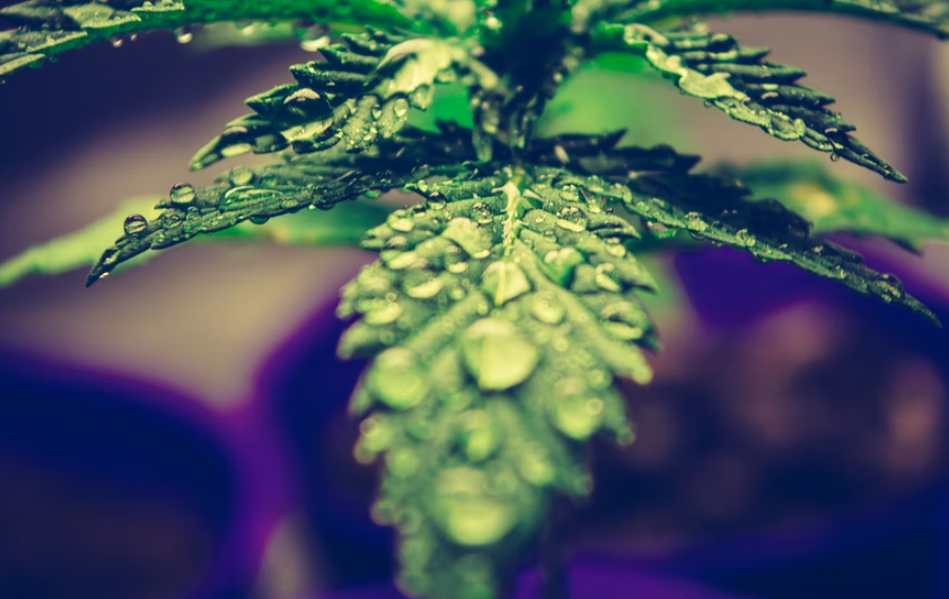Global Medical Cannabis Market Report 2023
Dublin – The global medical cannabis market size reached US$ 31.8 Billion in 2022. Looking forward, the publisher expects the market to reach US$ 57.4 Billion by 2028, exhibiting a CAGR of 10.34% during 2022-2028.
Companies Mentioned
- Canopy Growth Corporation
- GW Pharmaceuticals
- Aurora Cannabis Inc.
- Aphria Inc.
- MedReleaf Corporation
- Insys Therapeutics Inc.
- CanniMed Therapeutics Inc.
- Cara Therapeutics Inc.
- United Cannabis Corporation
Cannabis is a psychoactive drug that is derived from the cannabis plant of the Cannabaceae family. It was used medicinally in ancient Indian, Chinese, Egyptian and Islamic cultures.
Nowadays, cannabis finds application in the treatment of a wide range of diseases and symptoms, including cancer, chronic pain, depression, arthritis, diabetes, glaucoma, migraines, epilepsy, multiple sclerosis, acquired immunodeficiency syndrome (AIDS), amyotrophic lateral sclerosis (ALS), Alzheimer’s, post-traumatic stress disorder (PTSD), Parkinson’s and Tourette’s.
Owing to its therapeutic benefits, cannabis has been approved for medical use in numerous countries, with varying degrees of legal restrictions. Some of these countries include Argentina, Brazil, Canada, Chile, Colombia, Czech Republic, Germany, Italy, Mexico, Spain, the United Kingdom, the United States and Uruguay.
Global Medical Cannabis Market Drivers:
Cannabis is safer and has less severe side effects in comparison to other treatment options. It also finds usage along with other treatments either to enhance their efficacy or to combat adverse side effects. For instance, it is very effective in reducing nausea and increasing appetite among chemotherapy patients.
Similarly, it is also used in combination with traditional opioid painkillers, which enables patients to reduce the dosage and frequency of opioids significantly and imparts greater pain relief.
The steadily aging population across the globe has played a significant role in driving the demand for medical cannabis as geriatric patients are more likely to develop chronic illnesses and require more physician visits.
Clinical trials, research and development (R&D) activities and commercialization of cannabis-based indications are further expected to catalyze the growth of the market.
Although expenditure on health products is less susceptible to fluctuations, the uptake of medical marijuana is liable to changes in disposable income due to its unconventional nature. As a result, increasing disposable incomes are projected to create a positive impact on the demand for medical cannabis.
Key Questions Answered in This Report
1. What was the size of the global medical cannabis market in 2022?
2. What is the expected growth rate of the global medical cannabis market during 2023-2028?
3. What are the key factors driving the global medical cannabis market?
4. What has been the impact of COVID-19 on the global medical cannabis market?
5. What is the breakup of the global medical cannabis market based on the species?
6. What is the breakup of the global medical cannabis market based on the derivatives?
7. What is the breakup of the global medical cannabis market based on the application?
8. What is the breakup of the global medical cannabis market based on end-use?
9. What is the breakup of the global medical cannabis market based on the route of administration?
10. What are the key regions in the global medical cannabis market?
11. Who are the key players/companies in the global medical cannabis market?
Key Topics Covered:
1 Preface
2 Scope and Methodology
3 Executive Summary
4 Introduction
4.1 Overview
4.2 Key Industry Trends
5 Global Medical Cannabis Market
5.1 Market Overview
5.2 Market Performance
5.3 Impact of COVID-19
5.4 Market Breakup by Species
5.5 Market Breakup by Derivatives
5.6 Market Breakup by Application
5.7 Market Breakup by End-Use
5.8 Market Breakup by Route of Administration
5.9 Market Breakup by Region
5.10 Market Forecast
5.11 SWOT Analysis
5.12 Value Chain Analysis
5.13 Porters Five Forces Analysis
5.14 Key Success and Risk Factors
6 Market Breakup by Species
6.1 Indica
6.1.1 Market Trends
6.1.2 Market Forecast
6.2 Sativa
6.2.1 Market Trends
6.2.2 Market Forecast
6.3 Hybrid
6.3.1 Market Trends
6.3.2 Market Forecast
7 Market Breakup by Derivatives
7.1 Cannabidiol (CBD)
7.1.1 Market Trends
7.1.2 Market Forecast
7.2 Tetrahydrocannabinol (THC)
7.2.1 Market Trends
7.2.2 Market Forecast
7.3 Others
7.3.1 Market Trends
7.3.2 Market Forecast
8 Market Breakup by Application
8.1 Cancer
8.1.1 Market Trends
8.1.2 Market Forecast
8.2 Arthritis
8.2.1 Market Trends
8.2.2 Market Forecast
8.3 Migraine
8.3.1 Market Trends
8.3.2 Market Forecast
8.4 Epilepsy
8.4.1 Market Trends
8.4.2 Market Forecast
8.5 Others
8.5.1 Market Trends
8.5.2 Market Forecast
9 Market Breakup by End-Use
9.1 Pharmaceutical Industry
9.1.1 Market Trends
9.1.2 Market Forecast
9.2 Research and Development Centres
9.2.1 Market Trends
9.2.2 Market Forecast
9.3 Others
9.3.1 Market Trends
9.3.2 Market Forecast
10 Market Breakup by Route of Administration
10.1 Oral Solutions and Capsules
10.1.1 Market Trends
10.1.2 Market Forecast
10.2 Vaporizers
10.2.1 Market Trends
10.2.2 Market Forecast
10.3 Topicals
10.3.1 Market Trends
10.3.2 Market Forecast
10.4 Others
10.4.1 Market Trends
10.4.2 Market Forecast
11 Market Breakup by Region
12 Overview of Clinical Research Suggesting the Benefits of Medical Cannabis Across Various Indications
12.1 Alzheimer’s Disease
12.2 Autism
12.3 Cancer
12.4 Chronic Pain
12.5 Epilepsy
12.6 Migraine
12.7 Digestive Disorders
12.8 Multiple Sclerosis
12.9 Schizophrenia
12.10 Others
13 Competitive Landscape
13.1 Market Structure
13.2 Key Players
(This information is primarily sourced from ResearchAndMarkets.com. Highly Capitalized has neither approved nor disapproved the contents of this news release. Read our Disclaimer here).


































